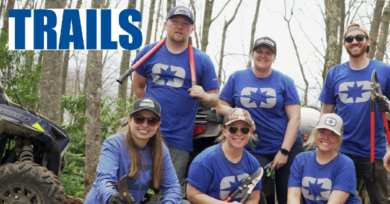May 14, 2007 – A constant industry challenge for managers
Those of us fortunate enough to be called managers often are unfortunate enough to receive a swarm of literature professing to have the answer to transform us into better managers.
It’s not that we already have reached a caliber of management that we’re immune to self-improvement. Hardly. In fact, just the opposite.
Any staff leader who puts the word “fortunate” next to “manager” firmly believes that becoming a better leader is a neverending process. It’s just that so many management experts preach to us in such mind-numbing ways that we groan when that in-box creeps another half-inch higher.
In fact from all those managerial must-reads that have reached my in-box, just one sticks out. And for full disclosure, actually it was just the first line, which read: “When’s the last time you asked your top employee how they like their job? Because if you haven’t, you can bet your competition has.”
If that thought sends a tremor through your spine, then consider yourself fortunate because you value your top employees enough to care. If no such tremor surfaces, then consider yourself fortunate to still be a manager because either your top staff are about to leave the company or are not worthy of the title “top.” Either way, your management position appears short-lived.
The subject of employee retention came up in the April 23rd edition of Powersports Business. As part of our yearly awards edition, we announced four industry leaders of the year, individuals whose companies have shown tremendous business growth and innovation. Those four leaders were asked a trio of difficult, open-ended questions that made the responder pause and mentally scratch and claw for a response.
Even with the open-ended questions, two of our 2007 industry leaders delved into the same topic on the question that details their company’s toughest challenge: fear of burning employees out.
Not that Gregory Pierce of GE Money or Craig Shoemaker of Western Power Sports (WPS), the two industry leaders who discussed the matter, are having a rash of burned-out employees. But the possibility of losing employees to elevated stress levels is a real concern.
And it’s valid, especially in times of economic slowdowns. Although GE and WPS are adding staff, many industry companies are not, and tighter budgets often translate into layoffs or new hire freezes, meaning existing employees are doing a whole lot more, with what is often times a whole lot less. All of which adds up to a disaster waiting to happen.
There are a number of studies out there that paint the American business sector as an overworked, stressed-out bunch. One of the more revealing studies was published in 2001 and said that 28 percent of employees said they felt overworked “often” or “very often.” The “Feeling Overworked” survey of more than 1,000 adults also revealed that more than 50 percent of employees “sometimes” felt overworked.
Other results from the survey, which was conducted by Families and Work Institute, a nonprofit group, are not as surprising, but merit just as much attention:
Think about your own staff and then consider who those 50 percent of the overworked employees are, or could be. Then ask yourself if those aren’t the people who are doing the most vital work around your office.
If that gives you reason to pause, then here’s something else to remember: Many employees who feel overworked tend to look around for a new job that isn’t quite so taxing.
The problem is it’s not always easy to identify these overworked employees. After all, hard workers — the rocks of the organization — are easily overlooked as eternal parts of the scenery.
It’s even more difficult to focus on these employees when business lessens and the emphasis falls on creating new and different revenue streams. Sure, safeguarding against employee burnout can be just as tricky as inventing new revenue streams, but it’s infinitely less burdensome on your budget. And that’s reason enough to stop what you’re doing and consider an open-ended question or two. psb
Neil Pascale is editor of Powersports Business. He can be contacted at npascale@ehlertpublishing.com.




